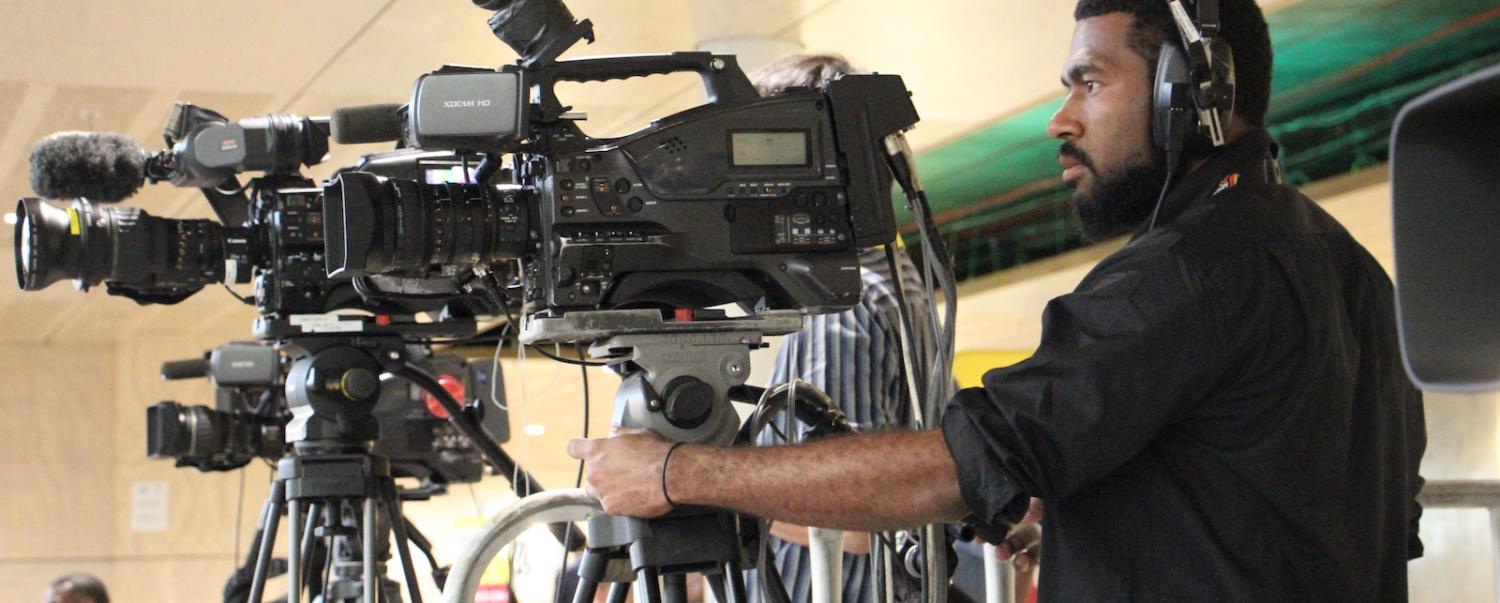This article is based on the podcast series “Developing” featuring interviews with PNG journalists, industry leaders, and politicians.
Papua New Guinea has gained a reputation – at least, in international reporting on the country – for being corrupt, violent and poor, yet also a country that is resource-rich and an advocate for Pacific Island nations against climate change. These contrasting characteristics as portrayed in the media and the tendency in modern international news reporting to obsess over “viral” stories makes PNG difficult country to understand. But that difficulty is also explained by the under-resourced media industry in PNG itself, that could otherwise tell the rich number of varied stories about nation with a fast-growing population.
The watchdog ideal of a journalism as a “fourth estate” would hold politicians and policymakers to account when it comes to natural disasters, crumbling city infrastructures, and poverty-stricken streets.
The Australian Broadcasting Cooperation (ABC) is the only foreign news broadcasting organisation to have a permanent base of operations in Port Moresby. The only other presence of foreign media is the part ownership of the Post Courier newspaper by Rupert Murdoch’s media empire, News Corp. The absence of foreign news media has been a growing concern for the Pacific and with the depleted resources and budget cuts by the Australian governments, the ABC has also curtailed its coverage of news from this region.
But the local dimension is important. The watchdog ideal of a journalism as a “fourth estate” would hold politicians and policymakers to account when it comes to natural disasters, crumbling city infrastructures, and poverty-stricken streets – and there is plenty of such reporting in PNG. Yet as Jean Morea, a senior journalist at the Post-Courier newspaper, explains, there is also a cultural context, a deep-rooted fear of disrespecting “the big man”.
The “Big Man Mentality” as Morea calls it, is a culture which restricts the ability of journalists to challenge or ask tough questions of people in power or respectable positions in society. The regular silence at the end of news conferences and the reliance on curated press releases in daily news broadcasts is seen as one of the biggest hurdles in the PNG news industry.
Resources also pose a challenge, not only for working journalists but even for those who aspire to have a career in the media. Emily Matasororo, Head of Department for Journalism at University of Papua New Guinea (UPNG), says a lack of funding compounds the difficulty of teaching a journalism course without the basic resources of cameras, computers, recording equipment, and studios. “They have dumped us”, Matasororo says repeatedly when speaking about the university support.
Low admission rates from high school to universities in PNG across the past 20 years has resulted in a stark drop of people option careers in the news and media industry. Scott Waide, a senior investigative journalist for EMTV National News, has made it a personal quest for the past year to promote journalism as a career option at universities and colleges across the country.
International broadcasting can help foster greater awareness and understanding – not only within PNG, but also with benefits for a country such as Australia, as the Lowy Institute has highlighted, in a soft power sense. However, the end of the shortwave transmission to the Pacific by the ABC came as a monumental blow for people in regions where radio has been the only form of connecting with the outside world. Much of PNG still lacks resources for broadcast capability.
And stories shape perception. When Western news journalists do report on PNG, it is largely on the development aspects of the country, which as with reporting on other nations perpetuates a view of the country as impoverished and in need of international support. PNG’s Finance Minister Charles Abel told me that he believes Australian and other news organisations do present a slanted view of PNG. “There is very little awareness of the positive things about the country and how we are pursuing a positive developmental agenda”, Abel said.
None of these are easy challenges to revolve. Reporting them is a start.

